a16z分析师:Web3的可组合性成就了加密猫、Axie Infinity等链游
原文作者:A16z 加密分析师 Elena Burger
原文编译:Kyle,元宇宙之道
web3 独有的核心价值是可组合性:获取由一种协议生成的资产或数据并与另一种协议一起使用的能力。在 web3 游戏中,可组合性解锁了一些强大的东西——玩家第一次可以参与指导游戏本身的机制和价值。
如果您查看 web3 历史上(还很早期!)的许多最受欢迎的游戏,您会注意到可组合性存在于所有这些游戏的 DNA 中。毫不夸张地说,这些游戏之所以成功,是因为这些游戏的开发者在构建时就考虑到了可组合性。
以 CryptoKitties(加密猫)为例。该游戏旨在让玩家繁殖、铸造和交易稀有的 NFT 猫,具有许多可组合的功能,可促进游戏玩法并增强生态系统 - 并且在构建时仔细考虑了区块链的可能性和挑战。
从表面上看,CryptoKitties 似乎很简单
养两只猫,培育它们并创造一只具有稀有 Cattributes(猫属性)的后代猫。但真正诞生 CryptoKitties 的行为需要智能合约架构的创新,并允许出现一个全新的经济体。
CryptoKitties 不得不与链上设计的现实作斗争:以太坊网络中没有计时器来规定何时执行合约。虽然从理论上讲,繁殖和分娩猫之间的时间约为 40 分钟,但外部参与者需要调用此函数。
这一现实创造了一个新的(白帽!)机器人运营商生态系统,进入并赚取用户支付的生育费。
由于 CryptoKitties 合约是开源的,用户甚至可以创建整个前端来调用 giveBirth()。早在 2018 年,像 @dominiek 这样的用户就可以通过这样做每小时赚取大约 100 美元。
由于 CryptoKitties 是开源且可扩展的,因此更多的社区成员设计了其他自动化机制。一个团队开源了一个特殊用途的客户端,允许用户在具有新特征的猫甚至在 CryptoKitties 网站上呈现之前对它们进行竞标。
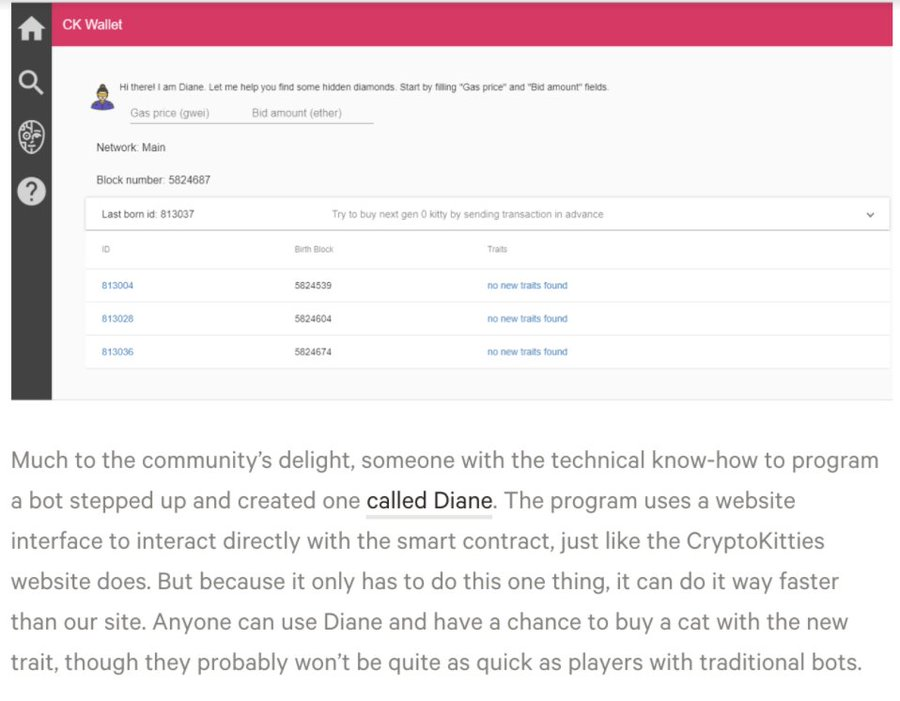
除了这些功能之外,CryptoKitties 还开始展示其他社区创建的游戏和功能,称为 Kittyverse,其中包括战斗和赛车游戏、市场客户端,甚至社交网络。
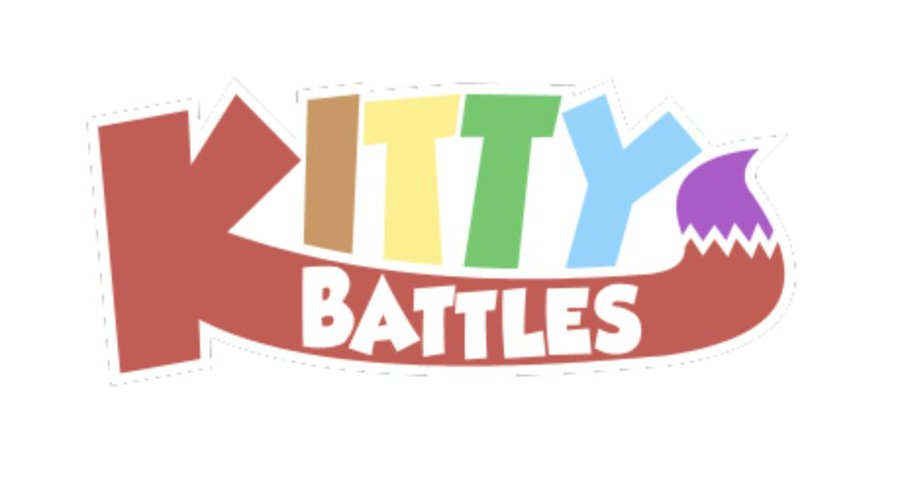
一个团队甚至创建了一个功能齐全的测试网,以使开发人员更容易迭代他们的模组。CryptoKitties 是一个早期迹象,即当您围绕可组合性构建应用程序时,您可能将与一群高度敬业的改装者和混音师合作。
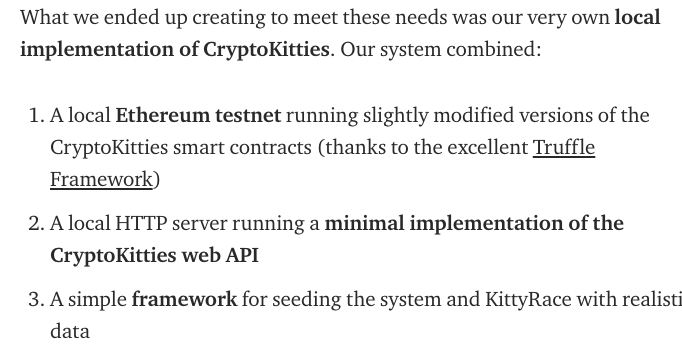
Cryptokitties 启发了新一代的建设者:Axie Infinity 的创始团队就是在玩这个猫收藏游戏时相遇。事实上,@Jihoz_Axie 的一篇关于评估数字收藏品的早期博客文章使用了一只罕见的创世 Cryptokitty 作为例子。
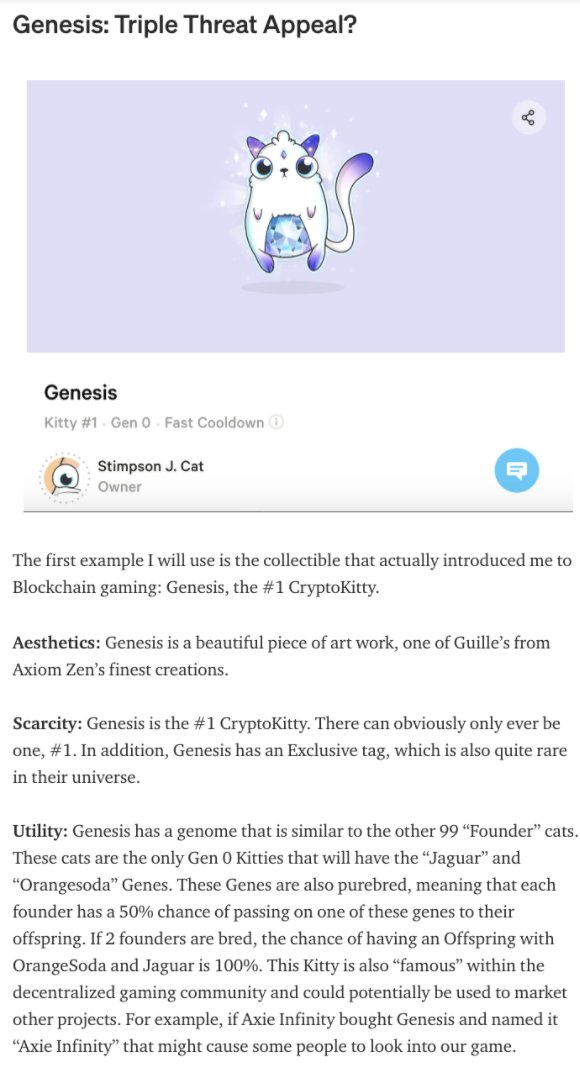
但是 Axie 很快就超越了 NFT 收藏品
进入了一个更复杂的战斗和策略游戏,这需要获得经验值,后来,这个经验值变成了可替代的 ERC-20 token 被称为 Smooth Love Potion (SLP)。在 SLP 部署历史的早期,团队注意到了一些有趣的事情。
虽然 SLP 只是通过游戏获得的简单游戏内 token,但 Axie Infinity 的用户于 2019 年 12 月创建了 Uniswap 池,并开始将 SLP 作为实际资产进行交易。

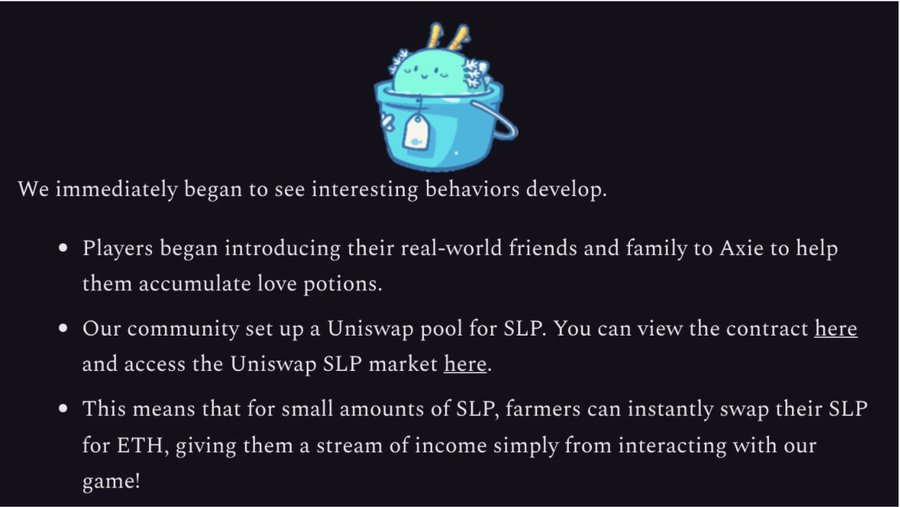
很难夸大这是多么激进。web2 游戏的玩家不可能立即创建一个 ERC-20 池,将他们的游戏内资产移植到 Uniswap 等自动化做市商(AMM),然后将它们换成游戏本身封装之外的另一个 token。
这些世界被设计为封闭的,而不是可组合的。Web2 资产仅限于游戏或 Steam 社区市场等平台,因此无法将物品或资金转移出生态系统。资产和协议之间的可组合性使 SLP 池成为可能。
可以说,更具开创性的事情发生在 1.5 年后的 2021 年 8 月,当时菲律宾的商家开始接受 SLP 支付。至此,Axie 已经积累了数百万玩家,并且过渡到 Ronin 侧链,并为用户产生了数亿美元的收入。
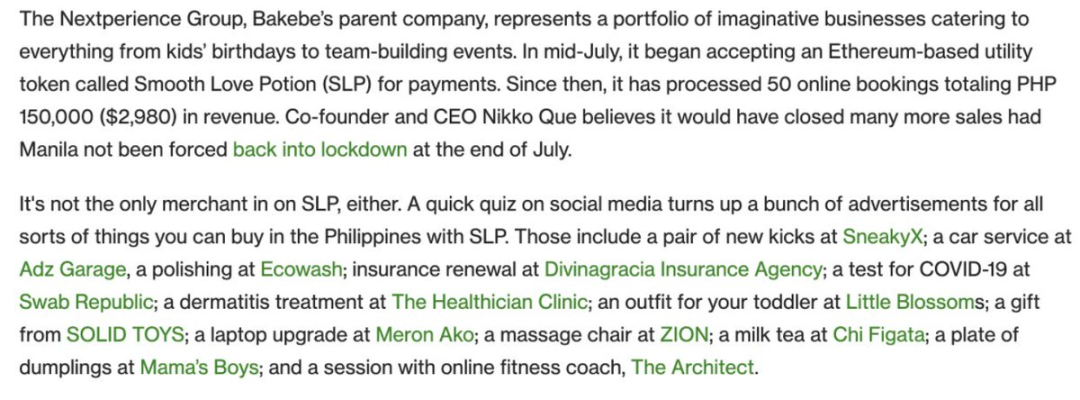
如果没有 Uniswap 上的初始 SLP-ETH 池,这一切都不会发生,这是通过协议之间的可组合性实现的。第一次,用户能够确定他们正在玩的游戏的经济价值,然后将该价值扩展到物理世界。
最后一个例子:黑暗森林(Dark Forest)是一款链上策略 MMO 游戏,玩家的目标是通过征服行星和采矿资源来扩大自己的领土。游戏使用零知识证明来掩盖玩家位置信息;揭开地图需要输出哈希算力来「挖掘」坐标。
黑暗森林有两个关键创新
1)所有游戏逻辑都在链上,方便开发者创建插件和自定义客户端
2)它是最早的「不完整信息」加密游戏之一;玩家只知道自己的位置和他们拥有的行星
黑暗森林的用户插件照亮了游戏中最激动人心的部分。玩家创造了一切,从游戏内 NFT 的市场到自动安排移动的插件,再到加快玩家散列地图未知部分的速度的「远程 snarker」。
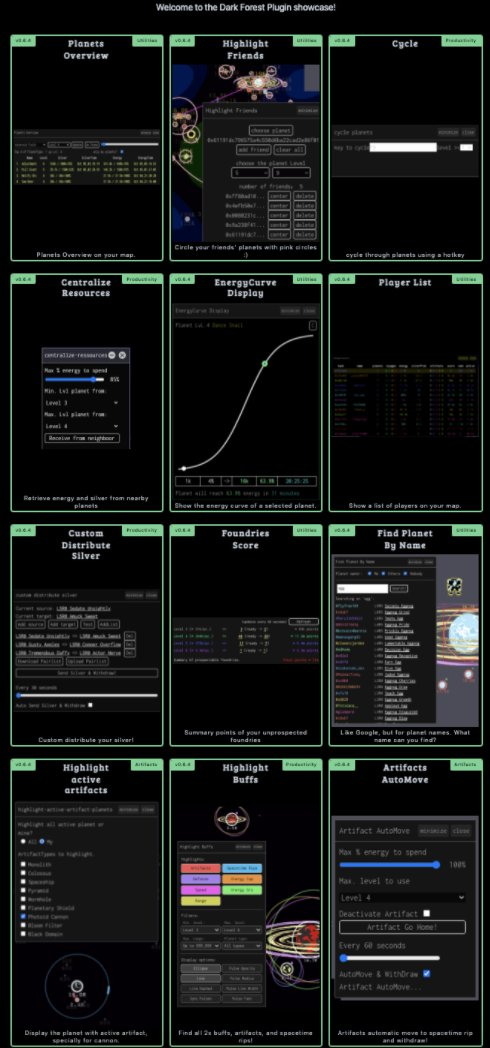
最后一个例子很关键。在信息不完整的博弈中,信息本身成为最有价值的资产。游戏过程中出现了其他迹象。一些玩家甚至将计算外包给 AWS,以比竞争对手更快的速度挖掘和发现黑暗森林地图。
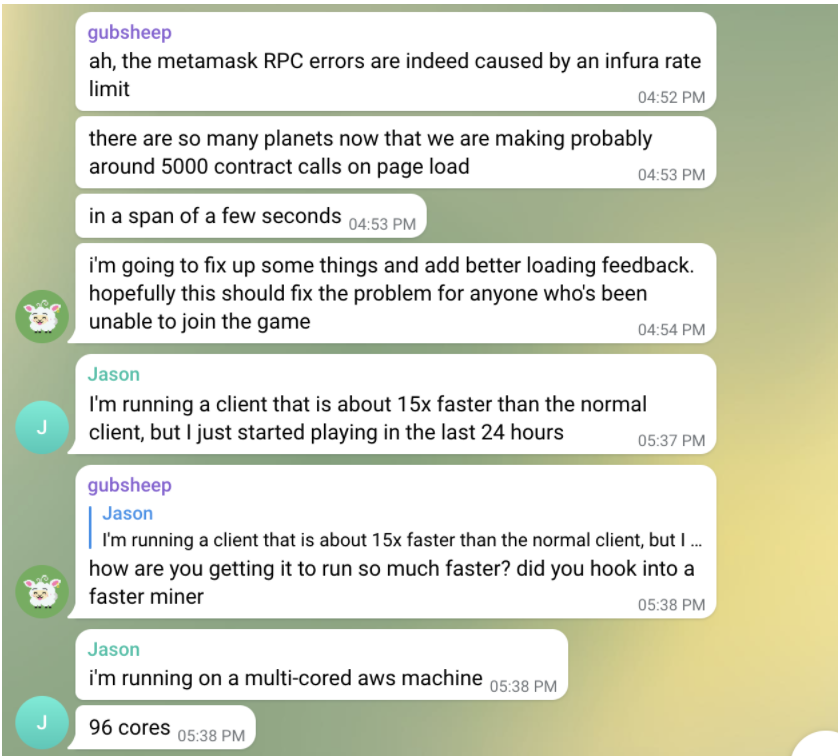
Dark Forest 用户生成的最酷插件是 Broadcast Market,它创建了一个交易平台,允许用户每天透露他们的一颗行星的位置,以换取赏金,让用户能够重视游戏中的数据本身的价值。
您可能已经注意到,在这些示例中,价值围绕玩家输出和共识有机地出现。CryptoKitties 有生育机器人和附加游戏,Axie 社区成员创建了第一个 SLP 池并将其作为 IRL 货币接受,Dark Forest 有信息挖掘和经纪服务。
可组合性的最大成果之一是它允许数字价值持续存在于「现实世界」中。事实上,正是力量打破了两者之间的壁垒。我们是后「虚拟」和「物理」的——只有价值可以自由流动的可渗透空间。
Web3 游戏为用户提供了创建这些新世界的结构;在许多情况下,最初的游戏世界只是整个生态系统的一小部分。虽然我们还为时过早,但智能合约的高度可组合性使这一切成为可能。



